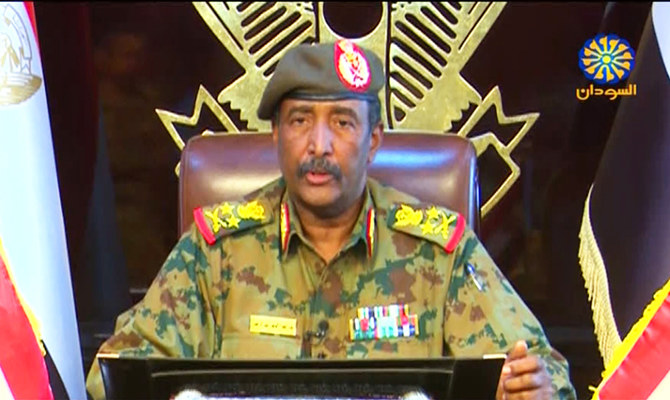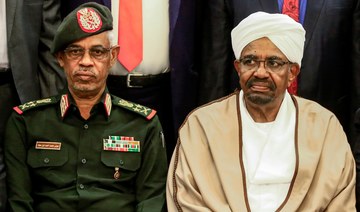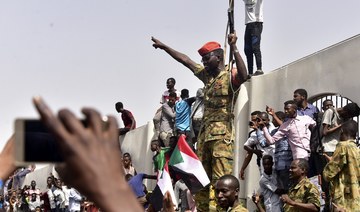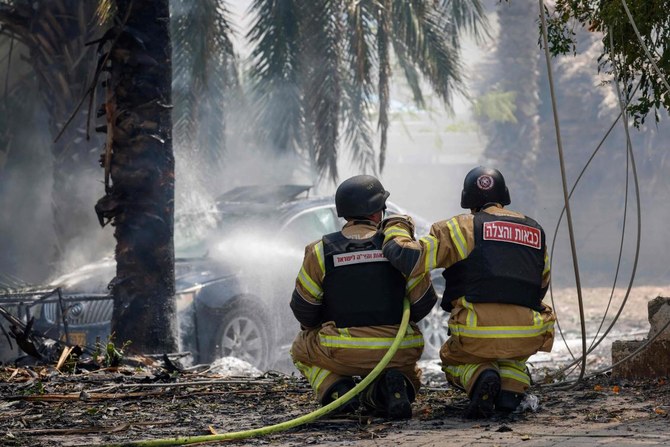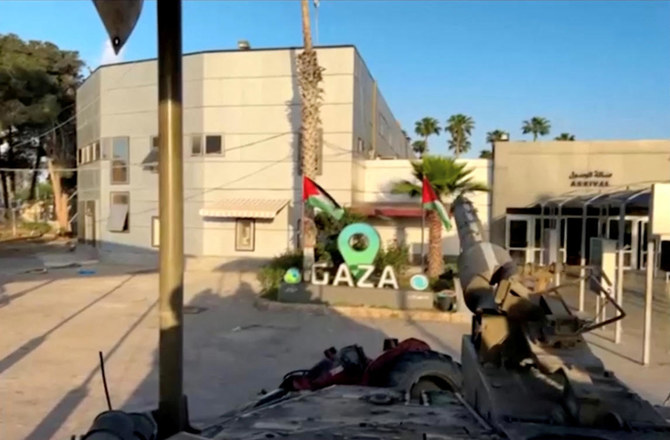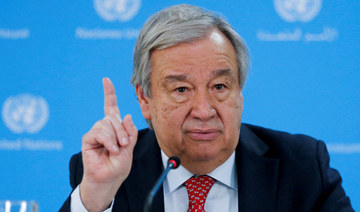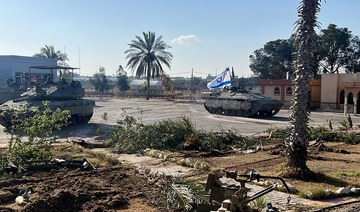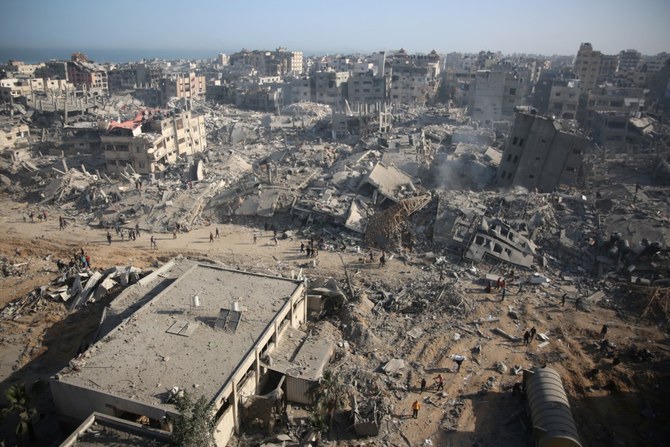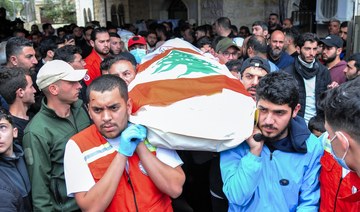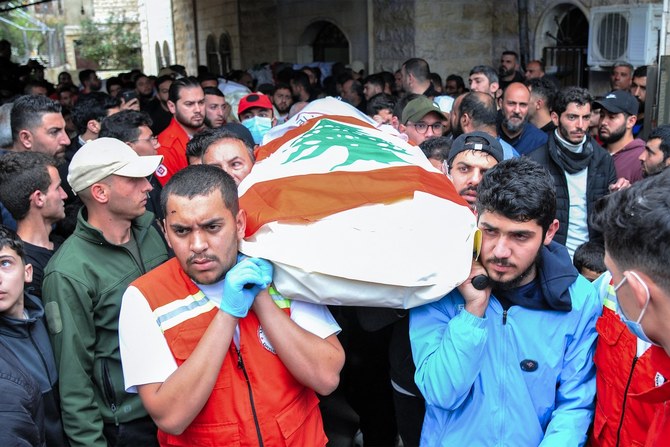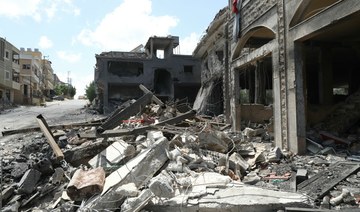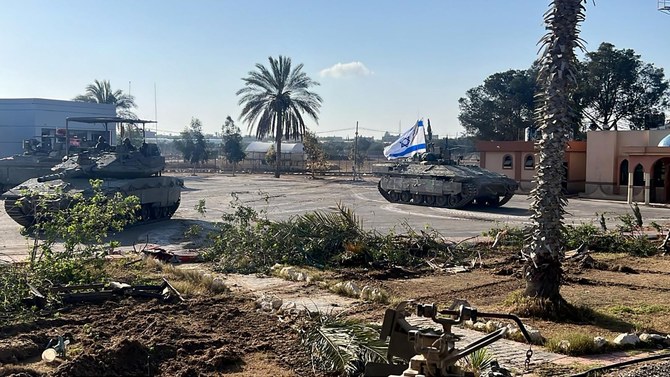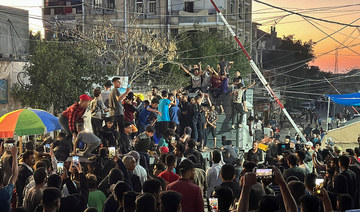KHARTOUM/CAIRO: Sudan’s new military ruler held talks on Saturday with opposition leaders about forming a temporary civilian government, promising to “uproot” deposed president Omar Al-Bashir’s regime, in a bid to placate demonstrators demanding civilian rule.
Lt. Gen. Abdel Fattah Abdelrahman Burhan said the transition could take up to two years but protesters demanded more rapid change.
Protest organizers had earlier on Saturday urged people to keep marching to demand a civilian government after the defense minister and the intelligence chief stepped down.
Sudanese political parties and movements behind nearly four months of anti-government protests met with the country's military on Saturday, activists and the military said, holding the first talks since the army forced Al-Bashir from power two days ago.
In his first televised address, Burhan canceled a curfew ordered by his predecessor and ordered the release of all prisoners jailed under emergency laws imposed by Al-Bashir.
“I announce the restructuring of state institutions according to the law and pledge to fight corruption and uproot the regime and its symbols,” Burhan said, a day after he was sworn in to head Sudan’s new ruling military council.
The head of Sudan's rapid support forces, General Mohamed Hamdan Dagalo known by his nickname Hemeti, was appointed deputy of Sudan's transitional military council, Sudanese state TV said on Saturday.
The channel showed footage of Hemeti being sworn in as well as the new appointed members of the military transitional council.

Sudanese demonstrators celebrate near the Defense Ministry in Khartoum on April 13, 2019 after Defense Minister Awad Ibn Auf stepped down as head of the country's transitional ruling military council. (REUTERS)
Career soldier Burhan took the helm of Sudan’s transitional military council on Friday when his predecessor General Awad Ibn Auf — a close aide of Al-Bashir — quit after little more than 24 hours in power.
Burhan was the third most senior general in the Sudanese armed forces and is little known in public life. As head of Sudan’s ground forces he oversaw Sudanese troops fighting in the Arab coalition to restore the legitimate government in Yemen.
Burhan pledged Saturday that individuals implicated in killing protesters would face justice.
His initial announcements indicated he wanted to show the tens of thousands of protesters on the streets that he is not part of the regime’s old guard and was genuinely committed to reform.
He also accepted the resignation of the head of the feared National Intelligence and Security Service, Salah Abdallah Mohammed Salih — widely known as Salih Ghosh — the military council announced.
Salih Ghosh had overseen a sweeping crackdown against protesters in four months of mass demonstrations that led to the army’s toppling of Bashir on Thursday.
Events have moved rapidly since Al-Bashir was deposed on Thursday after mass protests.
Defense Minister Awad Ibn Auf took over as head of the transitional military council, but quit on Friday, after less than a day and was replaced by Burhan.
Celebrations erupted on the streets of Khartoum overnight after Ibn Auf's resignation. Thousands of protesters waved flags and illuminated mobile phones in the darkness and drivers hooted car horns. People chanted: "The second has fallen!" a reference to Ibn Auf and Bashir, witnesses said.
Salah Gosh, also resigned on Saturday. He was once the most influential people in the country after Al-Bashir and protesters blamed him for the killing of demonstrators.
As head of the feared National Intelligence and Security Service, Salah Gosh led a violent crackdown by NISS agents on protesters taking part in four months of mass demonstrations that led to the toppling of Al-Bashir. Dozens of protesters were killed and thousands of activists, opposition leaders and journalists arrested. Sixteen people were killed in live fire in Khartoum alone in the two days before Al-Bashir was deposed.
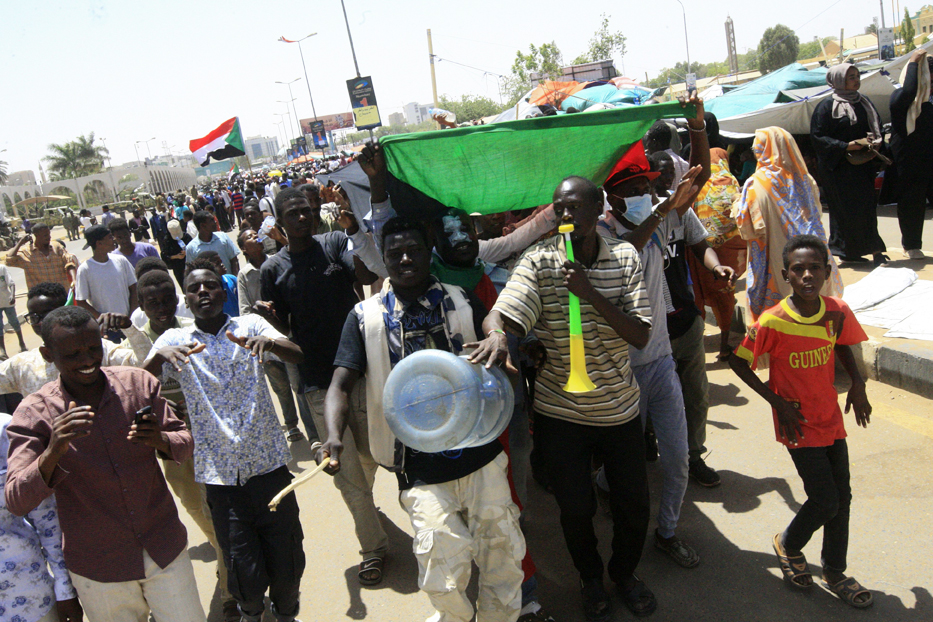
Young Sudanese rally to celebrate outside the army headquarters in Khartoum on April 13, 2019 after Sudan's new military ruler announced the end of a curfew and the release of political prisoners. (AFP / Ebrahim Hamid)
The military council under Ibn Auf had said it would not extradite Bashir to face accusations of genocide at the international war crimes court. Instead he might go on trial in Sudan.
It has rejected opposition demands for his extradition to face war crimes charges at the International Criminal Court.
The Sudanese Professionals Association (SPA), which has been leading protests to demand a civilian government, called on Saturday for more demonstrations. “We assert that our revolution is continuing and will not retreat or deviate from its path until we achieve ... our people’s legitimate demands of handing over power to a civilian government,” it said.
"We assert that our revolution is continuing and will not retreat or deviate from its path until we achieve ... our people's legitimate demands of handing over power to a civilian government," it said.
Al-Bashir, 75, seized power in a 1989 military coup.
The protests against him escalated last Saturday when thousands of demonstrators, apparently bolstered by change in Algeria following similar protests, marched towards the Defense Ministry in Khartoum to deliver a memorandum demanding the military side with them.
Demonstrators have been camping outside the compound since then to push for a handover of power, in a 16-week long demonstration brought on by rising food costs, high unemployment and increasing repression.
At least 16 people were killed and 20 injured by stray bullets at protests and sit-ins on Thursday and Friday, a police spokesman said. Government buildings and private property were also attacked, spokesman Hashem Ali added. He asked citizens to help ensure safety and public order.
(With Reuters, AFP)





